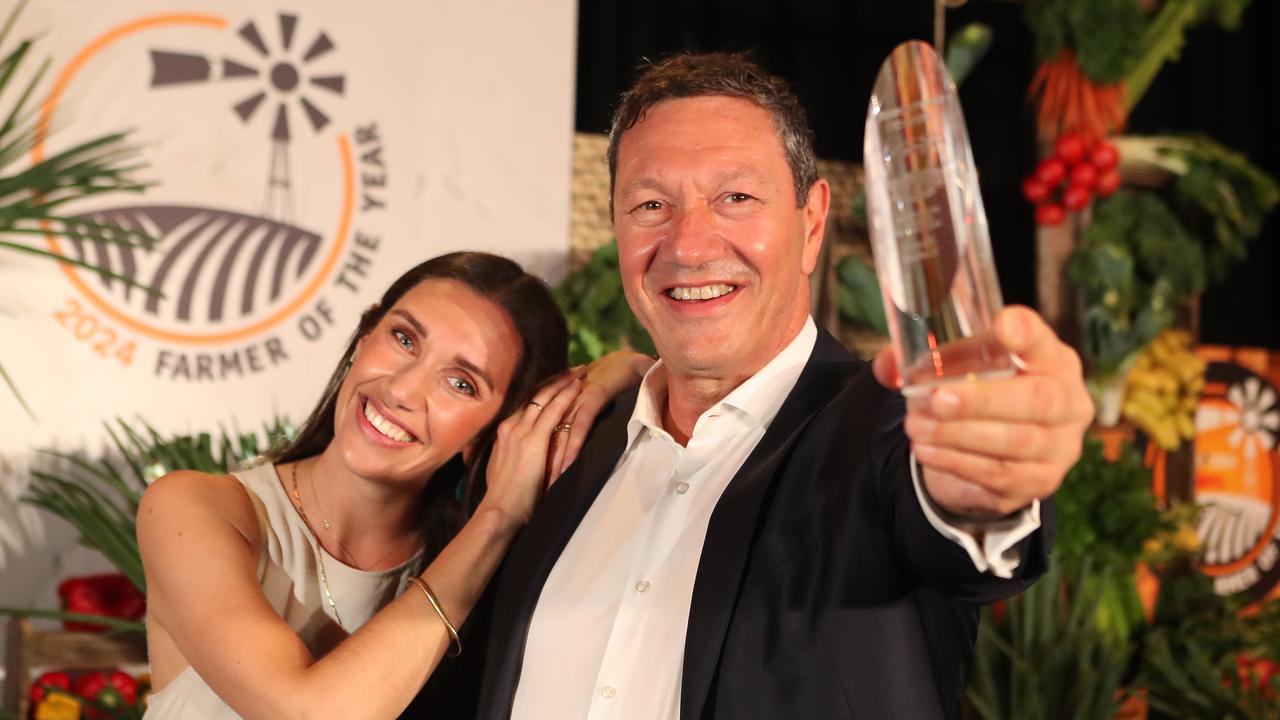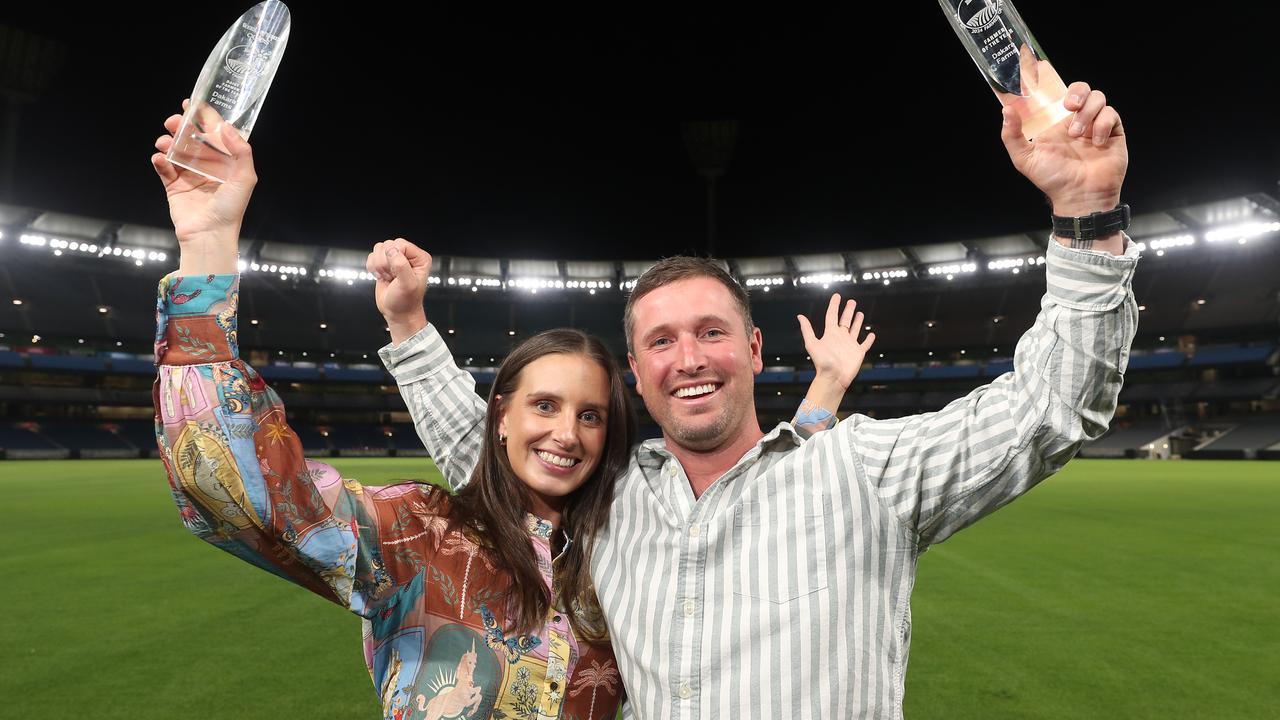The Weekly Times Coles 2022 Farmer of the Year Awards: Innovation finalists
Established or emerging, working with huge swathes of land or on small parcels, these family farms showed they can think outside the box and deliver.
These three family farms have all proved to be among the most innovative in Australia. Read on to see how they adapted in changing ag spaces and why they have been named finalists in The Weekly Times Coles 2022 Farmer of the Year awards Innovative category.
Stay tuned for the announcement of the six category award recipients and overall winner on Friday 24 February.
Meet the rest of the finalists here.
DENNIS FAMILY
TARNDWARNCOORT
WARNCOORT, VIC
Six generations of land ownership was never going to stand in the way of innovation for the Dennis family.
Yet it is history that has been woven into the current success of Tarndwarncoort, a sheep property near Colac in western Victoria selected by the owners’ ancestors in 1840.
Current custodian Tom Dennis knows any success is attributed to the myriad decisions made through the family’s tenure.
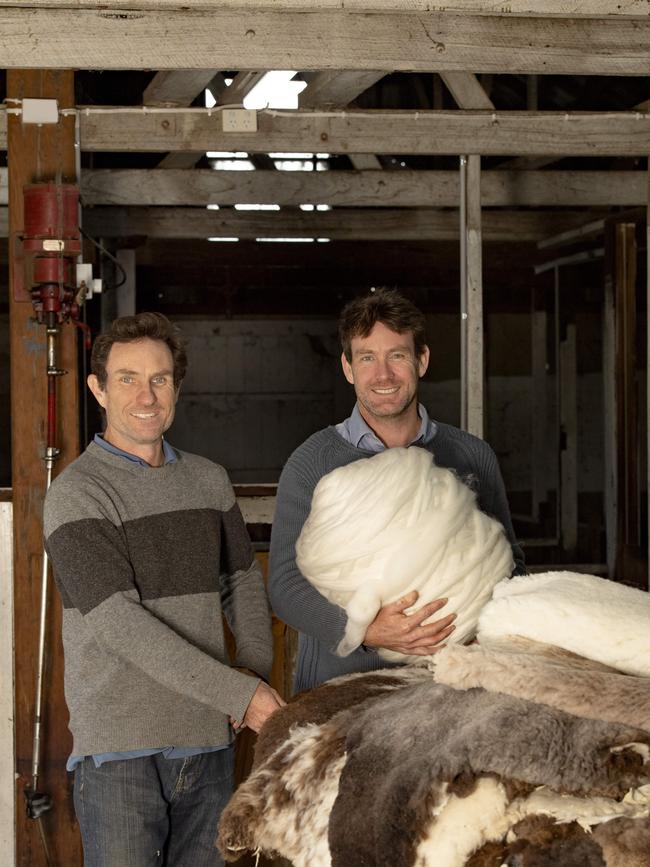
“Many years of bite-sized adaptation has led to developing something unique,” Tom says.
When the climate, and its 600mm rainfall, proved unsuitable for the first Saxon Merinos run there in the 1800s, the Dennis family developed their own breed of sheep – Polwarths – established in 1880.
That spirit of innovation has gone down through the generations, as the family today faced a similar challenge to their ancestors, given the smallish land holding of 200 hectares.
It has resulted in a multi-pronged business in which tourism, 2000 free-range chickens and the sale of wool spun from the Polwarths generate a range of income streams.
Alastair, Tom’s brother, runs a flock of 700 Polwarth ewes on his adjoining property, while Tom is in charge of the value-adding side of the business.
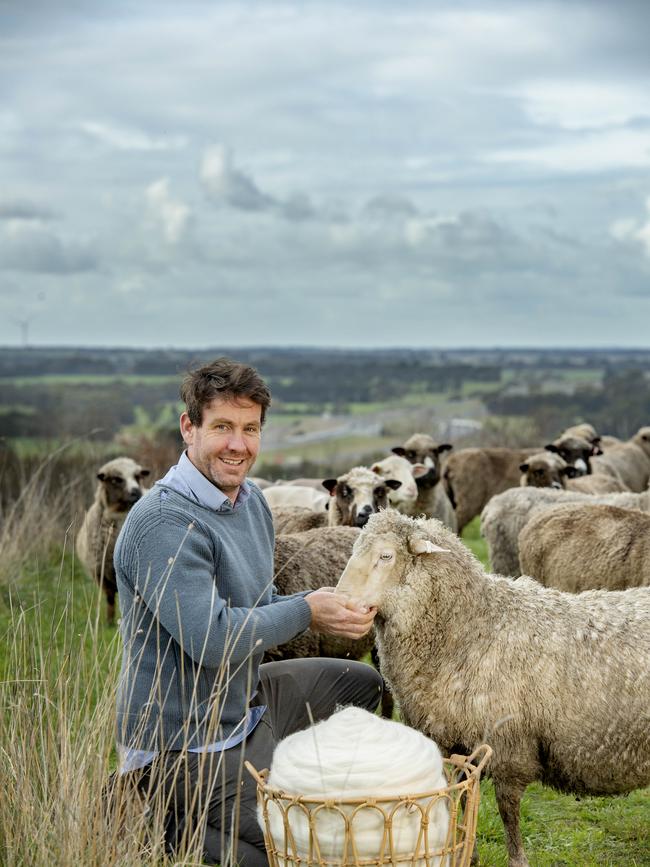
“Alastair grows the wool, I buy it and then produce the yarn,” he says.
The main value-adding portion of Tarndwarncoort is the white Polwarth wool, which is processed, dyed and sold as yarn in their farmgate shop and online.
It is scoured in Geelong, spun in New Zealand then dyed in Geelong and by hand at the heritage-listed homestead.
The wool, marketed under the Tarndwarncoort brand, is the operation’s major seller and while value-adding further has been trialled, yarn remains the cornerstone of the business.
Tarndwarncoort’s business model all comes back to the brave decision of the first generation of the Dennis family who came to Australia and created a new breed of sheep.
“We are proud of our history and our wool range pays homage to the colours of where we live, but we have always looked to innovate to see how we can maximise returns from our asset,” Tom says.
TOMMERUP FAMILY
TOMMERUP’S DAIRY FARM
KERRY, QLD
Sunshine in a bottle.
That’s the perfect description of Kay and Dave Tommerup’s creamy, golden Jersey Girl milk, which is the star of the show on their Queensland farm.
Creating “exceptional” dairy products has been the secret to success for the Scenic Rim family and their small-but-profitable milkers.
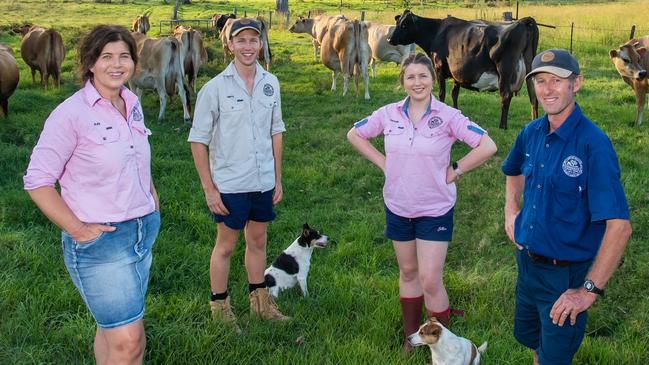
Kay, Dave and their adult children, Harry and Georgia, run Tommerup’s Dairy Farm, a diverse operation on 80 hectares at Kerry, with heritage breed pigs, beef cattle and free-range chooks, centred around a herd of 20 Jersey cows.
The farm has been in Dave’s family since 1874, for six generations.
When Dave and Kay took the reins in 2006, deregulation had cut farmgate returns, and they were struggling to make ends meet milking 100 cows.
“Everybody told us we should just get out because we were too small to survive,” Kay says. “That made us even more determined to keep going.”
So in 2008, they turned the business on its head, downsizing the herd to focus on quality ahead of quantity, then diversifying into pork, veal, eggs and agritourism to remain viable.
“We had to find other ways to keep our business going,” Kay says.
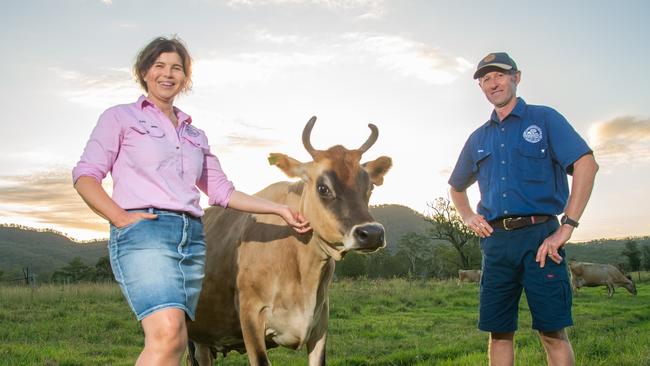
Since making the brave leap in 2021 to stop supplying a processor and use all their milk on the farm – either in their on-farm creamery or given to the pigs to create “milk-fed” pork – the dairy has hit its stride.
Today, profit is more than four times greater than in 2018, despite the sale of milk products decreasing.
In addition, they are reconnecting thousands of city consumers with how their food is created, through their vibrant agritourism operation, running farm tours, hosting school groups and spearheading foodie events.
Kay has been heavily involved in her local tourism group, and these days she represents farming interests on the boards of eastAUSmilk and Queensland Farmers Federation.
WHEAL FAMILY
BEACHPORT BERKSHIRES & BEACHPORT BREWING CO.
BEACHPORT, SA
What’s better than a juicy pork chop and a pint?
For South Australian farmers Mark and Kate Wheal, it’s when they tuck into a loin and lager that have both been produced on farm, using homegrown grains, and command a premium price.
The Wheals run a mixed livestock and cropping operation across 1400 hectares near Beachport.
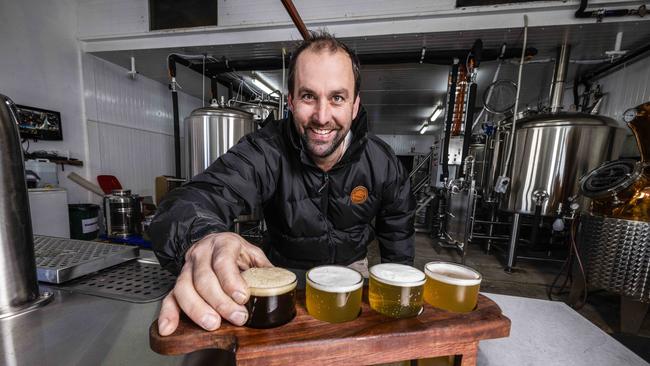
Since taking the helm a decade ago, Mark and Kate have diversified with two value-adding enterprises: Beachport Berkshires and Beachport Brewing Co.
Both ventures convert grains grown on the Wheals’ Limestone Coast farm into high-value gourmet produce; namely pork and beer.
Mark describes it as “the ultimate circular economy”.
“I’m trying to keep what I produce on the farm, and while doing that value-add,” he says.
Their foray into pigs started with a backyard experiment, to see what all the fuss was about Berkshire meat, renowned for its taste.
After falling in love with the flavour, the Wheals quickly turned free-range pigs into a business and now run 130 sows to process about 50 pigs a week, selling locally as well as to butchers in Melbourne, Adelaide and Tasmania.
The majority of the pigs’ feed is grown on farm, with much of their 500-tonne annual barley harvest, plus some wheat and beans, milled to feed the Berkshires, which run across about 60 hectares.
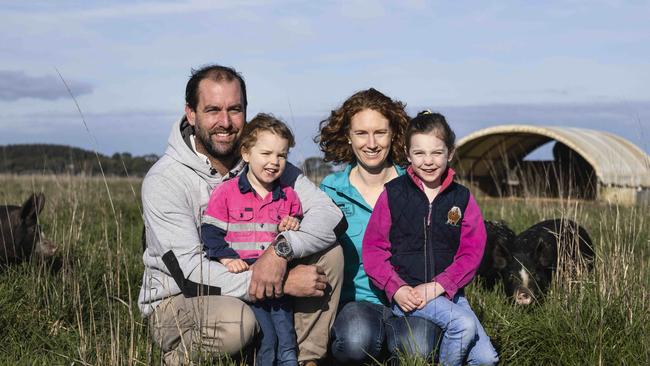
Beachport Berkshires now accounts for more than 25 per cent of the farm’s income.
But the Wheals focus on much more than revenue.
The health of their animals and land is paramount, with the pigs allowed unrestricted access to the outdoors, shifted slowly across paddocks to give soil and pasture time to recover.
To maximise returns they use artificial insemination, and Mark is applying the concept of intramuscular fat scores, using scans to identify breeders with the best marbling traits.
Last year they also invested $250,000 to build their own boning room, to better control the quality of their end product.
Pork isn’t the only way the Wheals are boosting the value of their crops.
They also recently opened their own microbrewery, next to their boning room, opposite the town’s iconic jetty.
Beachport Brewing Co sells “$9 pints with million-dollar views,” Mark says, with some of the family’s barley harvest malted and used in this year’s brews.
One more reason to raise a glass to the Wheals’ plan to “showcase local produce to the local community”.



